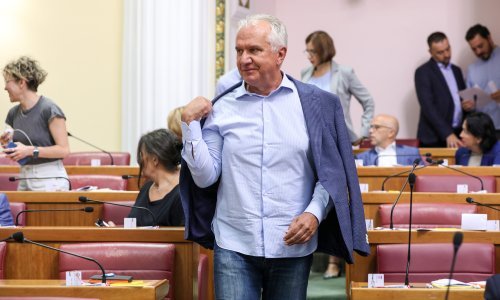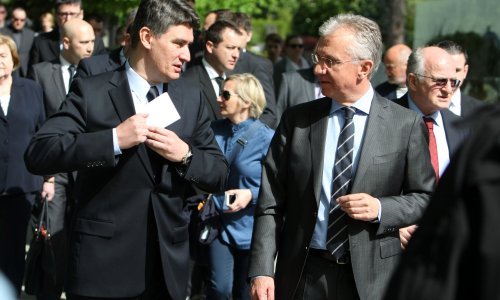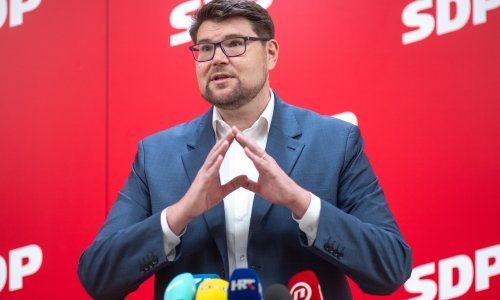Over 60% of Croatians believe that corruption will drop after the country joins the European Union next summer, 27% think it will remain at the same level, while slightly over 8% expect a rise in corruption, according to the results of a survey by corruption watchdog Transparency International Croatia (TIH), released on Monday to mark International Anti-Corruption Day which is observed on December 9.
"Of those who expect a decrease in corruption after Croatia's accession to the EU, 10.3% expect a considerable decrease, 51.3% a mild decrease, while 5.6% expect a partial increase in corruption and 2.8% a considerable increase," TIH management board member Zorislav Antun Petrovic said while presenting the results at a press conference in Zagreb.
The survey, conducted by Promocija Plus agency in November on a sample of 800 respondents, showed that 34.8% believed that EU institutions would play a key role in curbing corruption after accession, 28.6% thought that that role would be played by Croatian institutions, while 12.8% said that citizens would be playing a key role in it.
By sector, 8.6% of those polled said that corruption would be reduced the most in the judiciary, followed by the health services, political parties and the police, and over a third believed that corruption would decrease in all sectors.
A third of the respondents said they expected a decline in all forms of corruption, mostly bribe taking (12.8%) and nepotism (12.6%).
A total of 21.5% of those interviewed said that corruption would drop because of increased control of the work of the public authorities, 15.3% said they expected that special bodies would be set up to reduce the risk of corruption, 13.8% said they expected regulations to change for the better, 12.9% said they expected office holders and public servants to take less advantage of their position for private interests, 7.9% said they expected the public authorities to be more open to the public, while a quarter believed that there would be no change because Croatian people were steeped too deeply in corruption and it could not be uprooted.
As for the successfulness of the European Union in combating corruption, 27.4% of respondents said it was successful, 44.1% described it as fairly successful while 23.6% considered it unsuccessful.
In rating the activities of the Croatian authorities in fighting corruption, 3.5% of those polled said the government was fully committed to that objective, 38.4% said it was fairly committed, while 12.3% said they believed it was not dealing with corruption in the country.
"The latest survey shows that the pre-accession process has contributed a lot to anti-corruption efforts in Croatia because as a transition country it was given conditions it had to meet," TIH president Nikola Kristic said.
The Assistant Minister of Foreign and European Affairs, Hrvoje Marusic, said that this year alone the authorities had seized 11 million euros worth of unlawfully gained property, which he said was a considerable step forward in the fight against corruption and a considerable increase in comparison with last year when 2.5 million euros worth of property had been seized.
Health Minister Rajko Ostojic said that there were three ways to fight corruption - through prevention, raising of public awareness and supervision. "I am confident that in this way we will achieve a corruption-free society," he said.

































